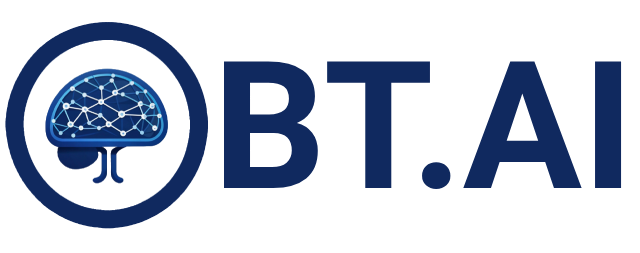How AI Tools Can Help You Manage Your Finances Better
Managing money is a crucial part of daily living, yet for many, overseeing income, expenditures, savings, and investments can become a complex and overwhelming task. This can be compounded by the constant fluctuations in the financial world and the extensive amount of information available on the web.
However, there’s a cutting-edge way to simplify and enhance personal finance management: the utilization of artificial intelligence (AI). AI-based applications employ sophisticated algorithms and utilize machine learning to sift through financial information, offering personalized guidance. These innovative solutions can support various financial tasks, such as budget planning, investment strategies, handling credit, and beyond.
In the following sections, we will delve into the advantages and practical uses of AI-powered tools in the realm of personal finance, demonstrating how they can be a valuable ally in reaching your monetary objectives.
What are the benefits of AI tools for personal finance?
AI tools for personal finance offer several advantages over traditional money management methods. Some of the benefits include:
- Personalization: AI tools can learn from your financial behavior, preferences, and goals and provide customized advice that suits your needs and situation. For example, an AI tool can suggest the best budgeting strategy, investment portfolio, or credit card based on your income, spending habits, risk tolerance, and financial objectives.
- Automation: AI tools can automate tedious and repetitive tasks such as data entry, transaction categorization, bill payment, and report generation. This can save you time and effort and reduce the risk of human errors. For example, an AI tool can automatically update your budget, track your expenses, pay your bills on time, and generate monthly reports.
- Optimization: AI tools can optimize your financial performance by finding opportunities to save money, increase income, reduce debt, and grow wealth. For example, an AI tool can analyze your spending patterns and identify areas where you can cut costs, negotiate better deals, or switch to cheaper alternatives. It can also monitor market trends and suggest the best time to buy or sell stocks, bonds, or other assets.
- Education: AI tools can educate you on various aspects of personal finance by providing relevant information, insights, and tips. For example, an AI tool can explain the pros and cons of different financial products or services, such as loans, insurance policies, or retirement plans. It can also teach you how to improve your credit score, avoid common financial mistakes, or plan for your future.
What are some examples of AI tools for personal finance?
Personal finance can be daunting for many people, especially in uncertain times. Fortunately, some AI tools can help you manage your money better, achieve your financial goals, and learn more about how to make smart decisions. Here are some of the best AI tools for personal finance that you can use today:
Parthean AI
Parthean AI is an AI-powered tool that allows users to ask financial questions and receive personalized responses based on their financial information. Parthean AI uses natural language processing to understand user queries and provide guidance and education on financial matters. Users can also build personalized plans for specific goals, such as paying off debt, saving for retirement, or launching a side hustle. Parthean AI integrates with Parthean’s budgeting, investing, and credit management tools and uses bank-level security to protect sensitive data. Parthean AI is currently in beta testing and will be available soon as a web or mobile app for iOS and Android devices.
Wallet.ai
Wallet.ai is an AI tool that helps analyze financial behavior to make better financial decisions. They provide users with a way to monitor and manage their finances, including tracking spending, setting budgets, and identifying areas for improvement. Wallet.ai uses machine learning to analyze millions of data, such as location, time, weather, social media, and personal preferences, to understand user behavior and provide personalized insights and recommendations. Wallet.ai can help users with various aspects of their personal finance, such as:
- Saving more money: Wallet.ai can help users find ways to save more money by identifying unnecessary expenses, hidden fees, or missed opportunities. Wallet.ai can also help users set and achieve their saving goals, such as building an emergency fund, saving for a vacation, or buying a house.
- Spending smarter: Wallet.ai can help users spend smarter by providing real-time feedback on their spending habits. Wallet.ai can also help users compare prices, find deals, and get rewards for their purchases.
- Improving financial health: Wallet.ai can help users improve their financial health by providing a comprehensive overview of their finances. Wallet.ai can also help users improve their credit scores, lower their debt, and plan for the future.
Wallet.ai is a free tool you can access online or through a mobile app for iOS and Android devices. It also offers a premium subscription that costs $4.99 per month or $49.99 per year and provides additional features, such as custom alerts, advanced analytics, and priority support.
WallyGPT
WallyGPT is an AI-powered personal finance assistant. It uses GPT technology to provide personalized financial advice, including investment recommendations and budgeting strategies. Users can input specific questions or prompts related to their finances and receive helpful responses from the AI. WallyGPT is part of the Wally app, which allows users to track their net worth, spending, and budgets by connecting their bank accounts to the app.
WallyGPT can help users with various aspects of their personal finance, such as:
- Understanding key financial concepts: Users can ask WallyGPT to explain terms and concepts related to their finances, such as credit score, debt, interest, budgeting, saving, investing, and retirement planning.
- Tracking and managing spending: Users can ask WallyGPT to show them their recent transactions, spending patterns, recurring expenses, subscriptions, and budgets. WallyGPT will also provide insights and tips on reducing spending and saving money.
- Optimizing credit card usage: Users can ask WallyGPT to show their balances, limits, utilization, due dates, and interest payments. WallyGPT will also recommend which card to use for different purchases to maximize cash back or rewards.
- Planning for goals and scenarios: Users can ask WallyGPT to help them plan for specific financial goals, such as buying a house, paying off debt, saving for retirement, or starting a business. WallyGPT will also help users create and compare scenarios and outcomes based on their assumptions and preferences.
- Investing and growing wealth: Users can ask WallyGPT to help them choose the best investment options for their risk profile, time horizon, and objectives. WallyGPT will also help users diversify their portfolios, rebalance their assets, and monitor performance.
WallyGPT is a free tool you can access online or through a mobile app for iOS and Android devices. It also offers a premium subscription that costs $4.99 per month or $49.99 per year and provides additional features, such as custom alerts, advanced analytics, and priority support.
How to use AI tools for personal finance effectively?
AI tools for personal finance can be very helpful in managing your money better, but they are only magic solutions that can solve some of your financial problems. To use AI tools for personal finance effectively, you need to:
- Choose the right tool for your needs: Many AI tools for personal finance are available, but not all may suit your needs and preferences. Before choosing an AI tool, you should consider factors such as:
- The features and functions of the tool
- The compatibility and integration of the tool with your devices and accounts
- The security and privacy of the tool and your data
- The cost and value of the tool
- The reviews and ratings of the tool by other users
- Provide accurate and complete data: AI tools for personal finance rely on your data to analyze your financial situation and provide recommendations. Therefore, you must ensure that your data is accurate, complete, and up-to-date. You should also regularly review and verify the data to avoid errors or discrepancies.
- Follow the advice and recommendations: AI personal finance tools can provide valuable advice and recommendations based on your financial data and goals. However, these are only suggestions, not orders. You still need to use your judgment and discretion to decide whether to follow them. You should also monitor the results and outcomes of following the advice and recommendations and adjust them accordingly if needed.
- Keep learning and improving: AI tools for personal finance can help you understand and improve your financial knowledge and skills. However, you should rely on them only partially or partially. You should also do your research, seek professional guidance, and explore other sources of information and education. You should also keep track of your financial progress and performance and celebrate your achievements.
Conclusion
AI tools for personal finance are powerful applications that can help you manage your money better. They can offer personalization, automation, optimization, and education benefits, making personal finance easier, more intelligent, and more convenient. However, you must choose the right tool for your needs, provide accurate and complete data, follow the advice and recommendations, and keep learning and improving to use AI tools for personal finance effectively.
AI tools for personal finance are not substitutes for human intelligence or intervention. They are complementary tools that can enhance your financial decision-making and well-being. By using AI tools for personal finance wisely, you can achieve your financial goals faster and easier.



